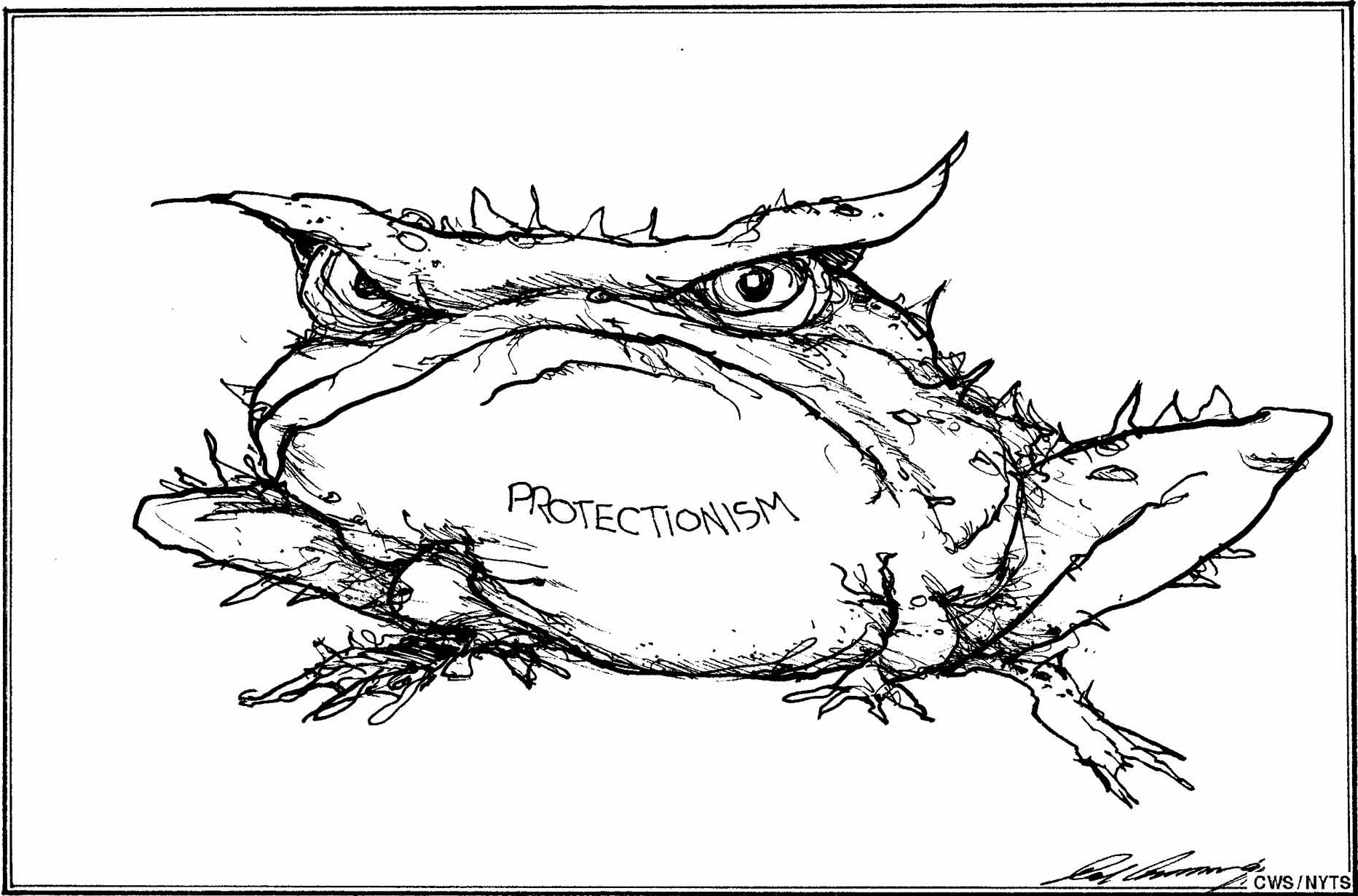Two companies that make solar panels are asking the government to protect them from foreign competition. They want the government to put taxes and a price floor on imports. Other companies are warning that these policies would raise prices and shrink the market, eliminating jobs for solar-panel installers, manufacturers of mounting equipment and other parts of the larger solar industry. They say as many as 88,000 jobs are at risk.
Solar protectionism would thus fit in a long tradition of America shooting itself in the foot by restricting trade. In a new paper for the libertarian Cato Institute, trade lawyer Scott Lincicome reviews the dismal history.
He admits that the evidence about the effects of protectionism in the earliest years of the country is mixed: Studies differ on whether it helped or hurt the economy, while unambiguously pointing to its facilitation of corruption. The later the period he examines, though, the stronger is the case that trade barriers have harmed Americans, both because there is just more data available and because global economic development raises the costs of those barriers.



















With your current subscription plan you can comment on stories. However, before writing your first comment, please create a display name in the Profile section of your subscriber account page.